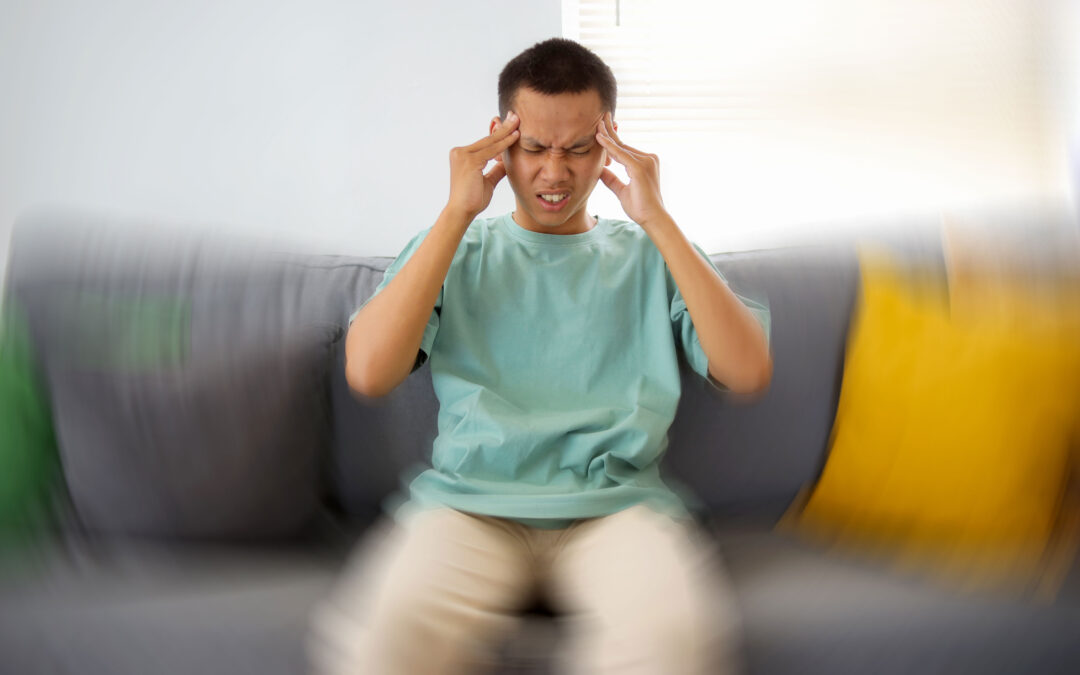Have you ever turned your head and suddenly felt the room spinning? Or perhaps you’ve experienced unexplained lightheadedness that seems connected to neck pain or stiffness? You might be experiencing cervicogenic dizziness—a condition that affects many people but often goes undiagnosed or is mistaken for other forms of vertigo.
For those struggling with this frustrating and sometimes debilitating condition, finding real relief becomes a top priority. While medications might temporarily ease symptoms, they don’t always get to the root of the problem. That’s why many people are looking for alternatives that go beyond just masking discomfort. Chiropractic care has gained attention as a potential option for those dealing with cervicogenic dizziness, offering a drug-free approach that focuses on how neck function impacts balance. So, what should you know? Let’s start with some basics.
What is Cervicogenic Dizziness?
Cervicogenic dizziness is a specific type of dizziness that originates from issues in the cervical spine (neck). Unlike other forms of vertigo that stem from inner ear problems or neurological conditions, cervicogenic dizziness results from a disturbance in sensory information between the neck and the brain.
Your neck contains specialized mechanoreceptors—sensory nerve endings that provide your brain with information about your head position and movement. These receptors work together with your visual system and inner ear to maintain balance and spatial orientation. When neck function is compromised due to injury, poor posture, or degenerative changes, these mechanoreceptors may send altered signals to your brain, resulting in dizziness.
The connection becomes clearer when we consider the anatomy involved. The upper cervical spine has intimate relationships with structures that control balance and eye movements. The first two vertebrae in your neck (atlas and axis) allow for substantial head rotation and are surrounded by a dense network of proprioceptive nerve endings that help coordinate head and eye movements.
Common symptoms of cervicogenic dizziness include:
- Dizziness or lightheadedness that worsens with certain neck positions
- Sensation of unsteadiness or imbalance rather than true spinning vertigo
- Symptoms that begin after neck injury or coincide with neck pain
- Dizziness that lasts minutes to hours and may be accompanied by a headache
- Symptoms that worsen with prolonged sitting, especially with poor posture
Unlike some forms of vertigo, cervicogenic dizziness doesn’t typically include hearing loss, ringing in the ears, or severe spinning sensations. The dizziness often improves when the neck is supported and worsens with neck movement or after holding the head in one position for extended periods.
How Chiropractic Care Addresses Cervicogenic Dizziness
Chiropractic approaches to cervicogenic dizziness focus on restoring proper function to the cervical spine, which may help normalize the sensory input from neck mechanoreceptors to the brain.
Your Bessemer chiropractor is trained to identify misalignments or restrictions in the cervical spine that may contribute to abnormal mechanoreceptor function. Through precise adjustments, particularly to the upper cervical vertebrae, we aim to restore proper movement patterns and joint function.
These adjustments are typically gentle, especially when treating cervicogenic dizziness. Many chiropractors use specialized techniques for the upper neck that involve minimal force but produce significant improvements in joint mobility and nervous system function.
By improving the biomechanical function of the cervical spine, these adjustments may help normalize the sensory information sent from neck receptors to the brain, potentially reducing dizziness symptoms.
Additionally, cervicogenic dizziness often has contributing factors that extend beyond simple joint dysfunction. Luckily, chiropractic care can further help address these factors which may include:
- Muscle tension and imbalances that affect neck position and movement
- Postural issues that place unusual stress on the cervical spine
- Previous injuries that may have disrupted normal neck function
- Daily habits and ergonomics that maintain or worsen the condition
If you’re experiencing dizziness that you suspect might be connected to neck problems, seeking professional evaluation is an important first step. At Premier Chiropractic Center, our team is here to help. Book your appointment with us today!

Recent Comments